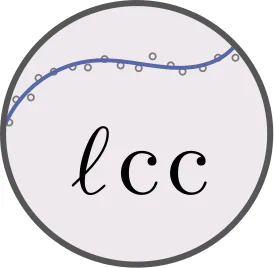lcc: an R package to estimate the concordance correlation, Pearson correlation, and accuracy over time
 Image credit: Thiago de Paula Oliveira
Image credit: Thiago de Paula OliveiraBackground and Objective: Observational studies and experiments in medicine, pharmacology, and agronomy are often concerned with assessing whether different methods or raters produce similar values over the time when measuring a quantitative variable. This paper aims to describe the statistical package lcc, for are, that can be used to estimate the extent of agreement between two (or more) methods over the time, and illustrate the developed methodology using three real examples.
Methods: The longitudinal concordance correlation, longitudinal Pearson correlation, and longitudinal accuracy functions can be estimated based on fixed effects and variance components of the mixed-effects regression model. Inference is made through bootstrap confidence intervals and diagnostic can be done via plots, and statistical tests.
Results: The main features of the package are estimation and inference about the extent of agreement using numerical and graphical summaries. Moreover, our approach accommodates both balanced and unbalanced experimental designs or observational studies, and allows for different within-group error structures, while allowing for the inclusion of covariates in the linear predictor to control systematic variations in the response. All examples show that our methodology is flexible and can be applied to many different data types.
Conclusions: The lcc package, available on the CRAN repository, proved to be a useful tool to describe the agreement between two or more methods over time, allowing the detection of changes in the extent of agreement. The inclusion of different structures for the variance-covariance matrices of random effects and residuals makes the package flexible for working with different types of databases.
Supplementary notes were added here:
- lcc package